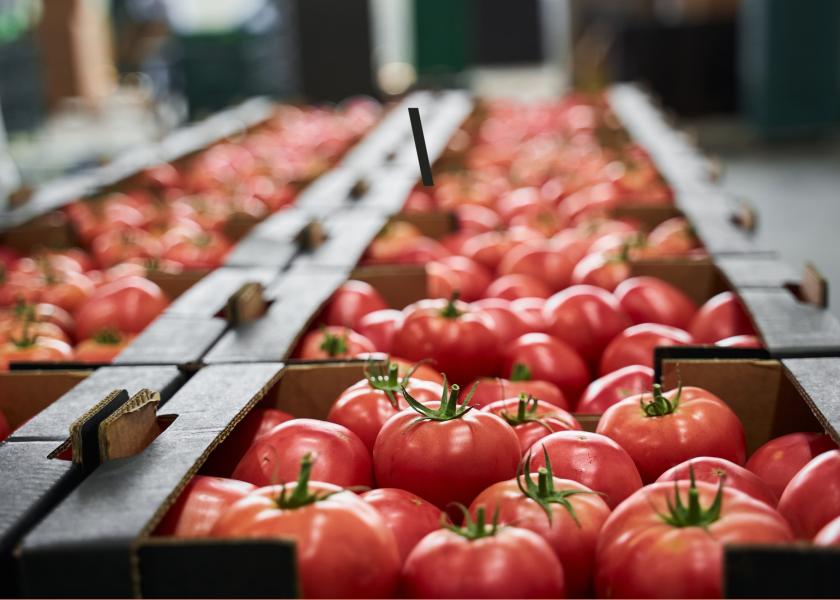Florida tomato leaders asks Commerce Department to revise approach to Mexico-U.S. tomato trade

Florida tomato leaders want a radically new approach to the Mexico-U.S. tomato trade.
A series of negotiated minimum price agreements between Mexican growers and the Department of Commerce since 1996 has failed to protect U.S. tomato growers, according to the Florida Tomato Exchange (FTE). The group said in a news release that the repeated failures have made it clear that the Commerce Department must terminate the 2019 Suspension Agreement and impose antidumping duties on Mexican tomatoes, as required by antidumping law.
The FTE filed a request with the Commerce Department to end the agreement — the latest of five negotiated since 1996 — because it has “failed to stop unfairly traded Mexican tomatoes from destroying the U.S. tomato industry,” the release said.
“Despite the good faith efforts of the Commerce Department over the last four years, the 2019 Suspension Agreement has not been able to close the loopholes that have always been a problem,” Michael Schadler, FTE executive vice president, said in the release. “It’s become clear that these agreements are simply not enforceable, at least when it comes to the tomato trade with Mexico. Suspension agreements might be an effective tool for products that can be kept in storage until market conditions improve, but for highly perishable items like fresh tomatoes, there is just too much incentive to evade the reference prices when markets are oversupplied.”
The allegations by the Florida growers are as “timeworn and tired” as the state’s gassed green tomatoes, Lance Jungmeyer, president of the Fresh Produce Association of the Americas, said in a statement.
“Consumers overwhelmingly prefer the flavor of vine-ripened tomatoes over gassed green tomatoes like those from Florida,” Jungmeyer said in the statement. “Mexico is a major supplier of vine-ripened tomatoes, which is one reason why the FTE wants to erect a trade barrier. There really is no substitute for a vine-ripened tomato, and to put in duties would simply amount to another tax that shoppers just can’t afford.”
Losing ground
The FTE said that suspension agreements are statutorily required to stop injury to the domestic industry caused by dumping. None of the suspension agreements covering Mexican tomato imports have met that requirement, the FTE said.
In 1994, the year that the North American Free Trade Agreement was signed, U.S. tomato growers supplied about 80% of the U.S. market and Mexico accounted for around 20%, the FTE said. Currently, the group said that Mexico’s share of the U.S. market is almost 70% while U.S. producers have approximately 30%.
Latest step
In 2019 the Commerce Department determined that Mexico had continued dumping and the International Trade Commission made an affirmative injury determination, the release from FTE said. The 2019 Suspension Agreement has failed to reverse the trend, as the FTE said Mexican tomato imports have increased a further 9%.
Average prices for U.S. growers initially rose in the first year after the agreement was signed but have been declining over the last three years as pressure resumed from unfairly traded Mexican imports, the FTE said.
The FTE said the Commerce Department has documented over 100 examples of how Mexican companies are not complying with the 2019 Suspension Agreement. All five suspension agreements over the last 27 years have failed, the FTE said in the release, calling the deals “unenforceable and easily violated.”
U.S. tomato growers will continue to be driven out of business if suspension agreements are continued to be forced on the industry, the FTE said.
“For that reason, we are calling on the Commerce Department to immediately terminate the 2019 Tomato Suspension Agreement and follow the antidumping law,” the group said.
Counterpoint
The FPAA said that the imposition of antidumping duties on Mexican tomatoes would be harmful to many U.S. growers.
“Such a political action by the U.S. acting on behalf of a U.S. special interest group would almost certainly result in retaliatory actions by Mexico, the second-largest importer of U.S. agricultural products,” the FPAA said in a statement.
U.S. growers of other commodities that rely on Mexico as a key export market also would be hurt, the group said.
The FPAA characterized the effort to end the suspension agreement as an effort to benefit a few wealthy growers in Florida.
“The FPAA and its members look forward to continuing to work with the Department of Commerce on ensuring compliance to the 2019 Tomato Suspension Agreement,” the group said in a statement. “FPAA members also look forward to continuing to work hard to meet consumer demands so that high-quality, affordable tomatoes are available in the U.S.”







